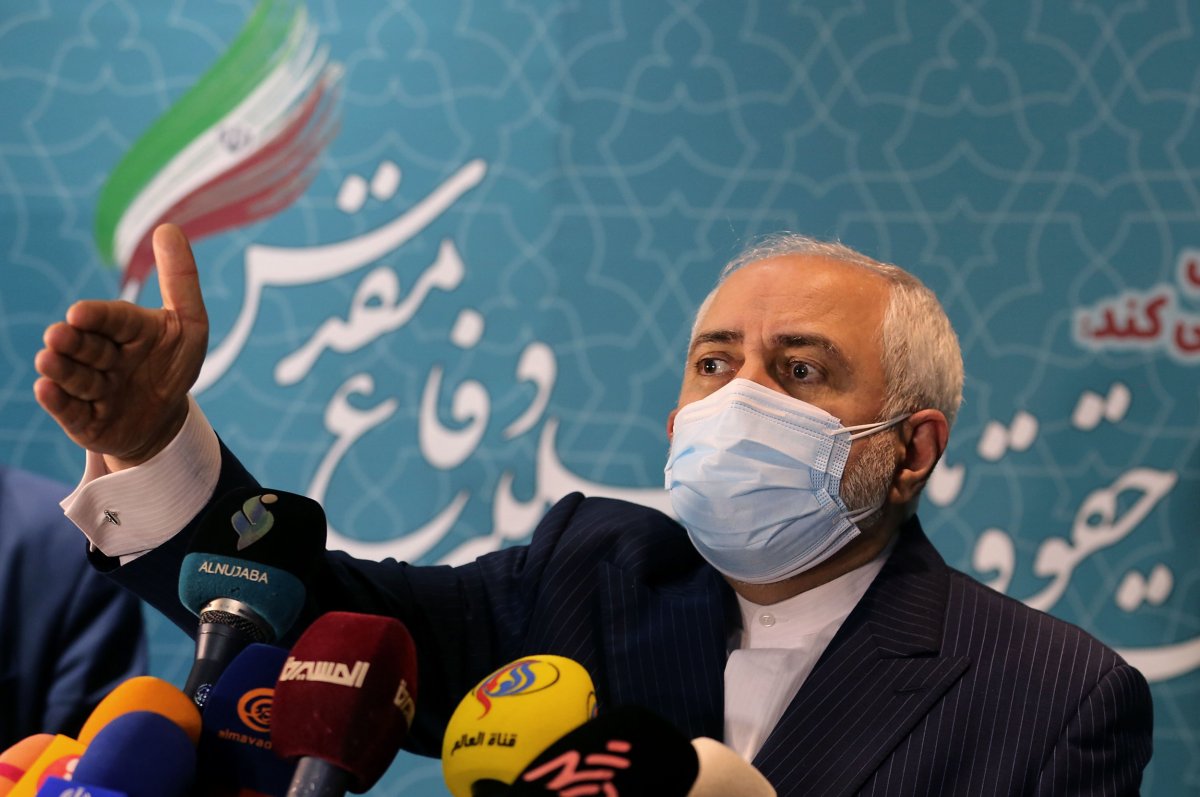Iran has warned of retaliation if the European signatories of the Joint Comprehensive Plan of Action proceed with their plan to censure Tehran at an upcoming International Atomic Energy Agency summit, as Iranian leaders try to convince President Joe Biden to lift American sanctions on the country.
The IAEA is due to hold a quarterly meeting this week in Vienna, where the European JCPOA signatories—collectively known as the E3—are planning to issue a resolution criticizing Iran's repeated refusal to scale back its nuclear program. According to Reuters, the draft resolution voices "serious concern" at Iran's activity.
Iran has been moving away from JCPOA restrictions since former President Donald Trump withdrew the U.S. from the deal in 2018 and began imposing new sanctions on the country.
Despite international pressure and a change in American administration, Iran has continued expanding its nuclear program in response to foreign assassinations and sanctions.
Iran is demanding that President Joe Biden lift Trump-era sanctions before it returns to compliance with the JCPOA. But the Biden administration wants Iran to scale back its nuclear program before sanctions relief, though has said it is open to multilateral talks to chart a diplomatic way out of the impasse.
The other signatories—Germany, France, the U.K., China and Russia—have all expressed support for revival of the deal. The E3 opposed Trump's "maximum pressure" campaign, but are now coordinating with Biden's team.
Iran has accused the E3 of failing to stand up to Trump and failing to do enough to protect the JCPOA, leaving Iran to weather ever-harsher economic sanctions even as the country grappled with the coronavirus pandemic.
An IAEA censure would further anger Tehran, and—Foreign Minister Javad Zarif has warned—might prompt retaliation.
Zarif met with members of the parliamentary National Security and Foreign Policy Commission this week to discuss the latest IAEA threat, the body's spokesman Abolfazl Amouyee told the Fars News Agency on Monday.
"The foreign minister presented a report on the latest developments at the IAEA Board of Governors during the meeting," Amouyee said, "and said if any destructive resolution is issued against Iran at the IAEA board of governors, Iran will show a serious reaction."
Zarif told reporters Monday: "The Europeans have started a wrong move in support of the U.S.," referring to the planned censure at the coming IAEA meeting.
Iran rebuffed a U.S. proposal for fresh talks, refusing any meeting until American sanctions are lifted. This frosty response, combined with tit-for-tat attacks between American forces and Iran-aligned Iraqi militias raised concerns that the path to JCPOA revival is narrowing.
But the Biden administration has remained committed to diplomacy, even as conservatives in the U.S. and foreign allies including Israel work to undermine the deal and sharpen America's Iran stance.
State Department spokesperson Ned Price said Monday the U.S. is "not dogmatic" about the format of future JCPOA talks with Iran, as long as any discussions are held with foreign partners. "What we are dogmatic about is that the best way to discuss the path forward is in dialogue," Price said.
But the Iranian government, led by moderate President Hassan Rouhani whose term ends this summer, is sticking to its guns. Government spokesperson Ali Rabiyee told reporters Monday: "We will not give in to the endless game aimed at buying time for the U.S. government and delaying the lifting of sanctions," according to Iran's ISNA news agency.
Rouhani is likely to be replaced by a conservative candidate when his term ends, possibly one drawn from the powerful Islamic Revolutionary Guard Corps. Rouhani, who signed the JCPOA with President Barack Obama in 2015, has a fast closing window of opportunity to revive the landmark deal.
Rouhani's government is facing its own internal pressure over the JCPOA. Conservatives—who now dominate parliament after last year's elections—view the deal with skepticism, and for many Trump's withdrawal from the deal and subsequent "maximum pressure" campaign is proof that the U.S. cannot be trusted to abide by any agreement.

Uncommon Knowledge
Newsweek is committed to challenging conventional wisdom and finding connections in the search for common ground.
Newsweek is committed to challenging conventional wisdom and finding connections in the search for common ground.
About the writer
David Brennan is Newsweek's Diplomatic Correspondent covering world politics and conflicts from London with a focus on NATO, the European ... Read more
To read how Newsweek uses AI as a newsroom tool, Click here.








